Africa
2014
Zone 9 blogger urges world to call for freedom in Ethiopia
In April, the Ethiopian government imprisoned nine journalists, including six bloggers from Zone 9, in one of the worst crackdowns against free expression in the country. Ethiopia is the second worst jailer of journalists in Africa, trailing only Eritrea, according to CPJ research.
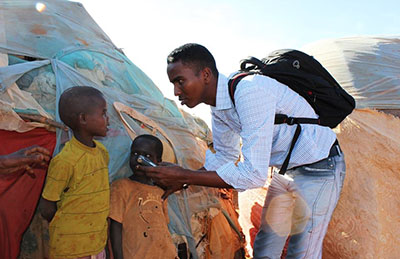
Reflections on my fallen colleague: Yusuf Keynan
My mother once sarcastically told me she could allow for my death, but couldn’t live with seeing my leg or hand amputated or with a lost eye after reporting from a battlefield. It was when she first learned that I had been secretly studying journalism in May 2005. The news made her distraught. She wanted…
Nigeria targets independent newspapers
Nigerian authorities have been waging widespread attacks on nearly a dozen independent newspapers under the cover of fighting terrorism. By last weekend, no fewer than 10 newspapers had their operations nationwide disrupted, leading to the loss of hundreds of thousands of newspaper sales.
Journalists targeted by both sides in Nigeria’s war on terror
The struggle between Nigerian authorities and militant extremist group Boko Haram was recently thrust into the global spotlight with the abduction of nearly 300 schoolgirls, but journalists in the country have been squeezed between the two sides for years.
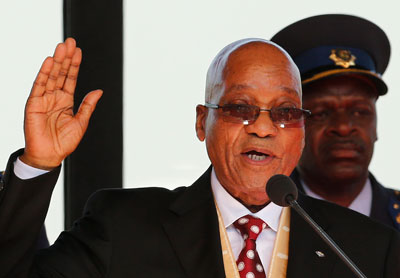
South Africa’s new communications ministry causes concern
Freedom of expression advocates in South Africa are concerned that the new Ministry of Communications, announced by President Jacob Zuma when he unveiled his cabinet on May 25, will compromise the independence of the public broadcaster and serve as a propaganda office.
Remembering Camille Lepage
“Not sure I can talk about my ‘career’ just yet–I’m still just getting started!” freelance photographer Camille Lepage told the photography site Petapixel in October 2013.Less than a year later, Lepage’s body was found in a car in the Central African Republic, according to news reports citing the French government. She had been traveling with fighters of…
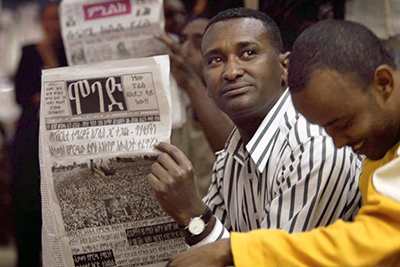
Ethiopia’s independent publishers may face another hurdle
In what appears to be one of a collection of measures to silence the press ahead of 2015 elections, Ethiopian authorities in the Communications Ministry are preparing a new system to control the distribution of print media. Privately owned newspapers and magazines, possibly the only remaining independent news sources in the country, would face more…
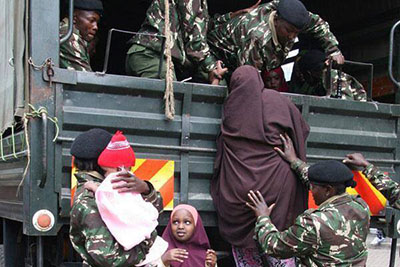
Kenya must consider plight of refugee journalists
Today, CPJ partnered with Reporters Without Borders and Rory Peck Trust in a joint open letter calling on Kenya’s Cabinet Secretary of Interior, Joseph Ole Lenku, to provide clarity on the government’s refugee policy and to exempt journalists from forced relocation to the refugee camps. On March 25, Lenku ordered all urban refugees to relocate…

SABC betrays South Africa’s young democracy
This week, South Africans go to the polls for their fifth democratic elections since 1994, but despite constitutional guarantees of media freedom, the vast majority of South Africans who vote will do so informed only by the positive news and information carried by a public broadcaster widely criticized for its partiality to the ruling party.
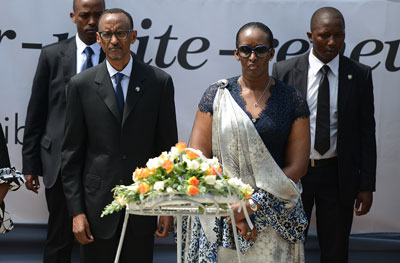
20 years after genocide, Rwanda safe, clean, undemocratic
“Do not forget the genocide,” said the voice of a state broadcast announcer in Kigali crackling through a cheap car radio, referring to the organized slaughter 20 years ago of more than 10 percent of the population. “We are all one now,” he said, speaking in Rwanda’s common language of Kinyarwanda, and meaning that Rwandans…